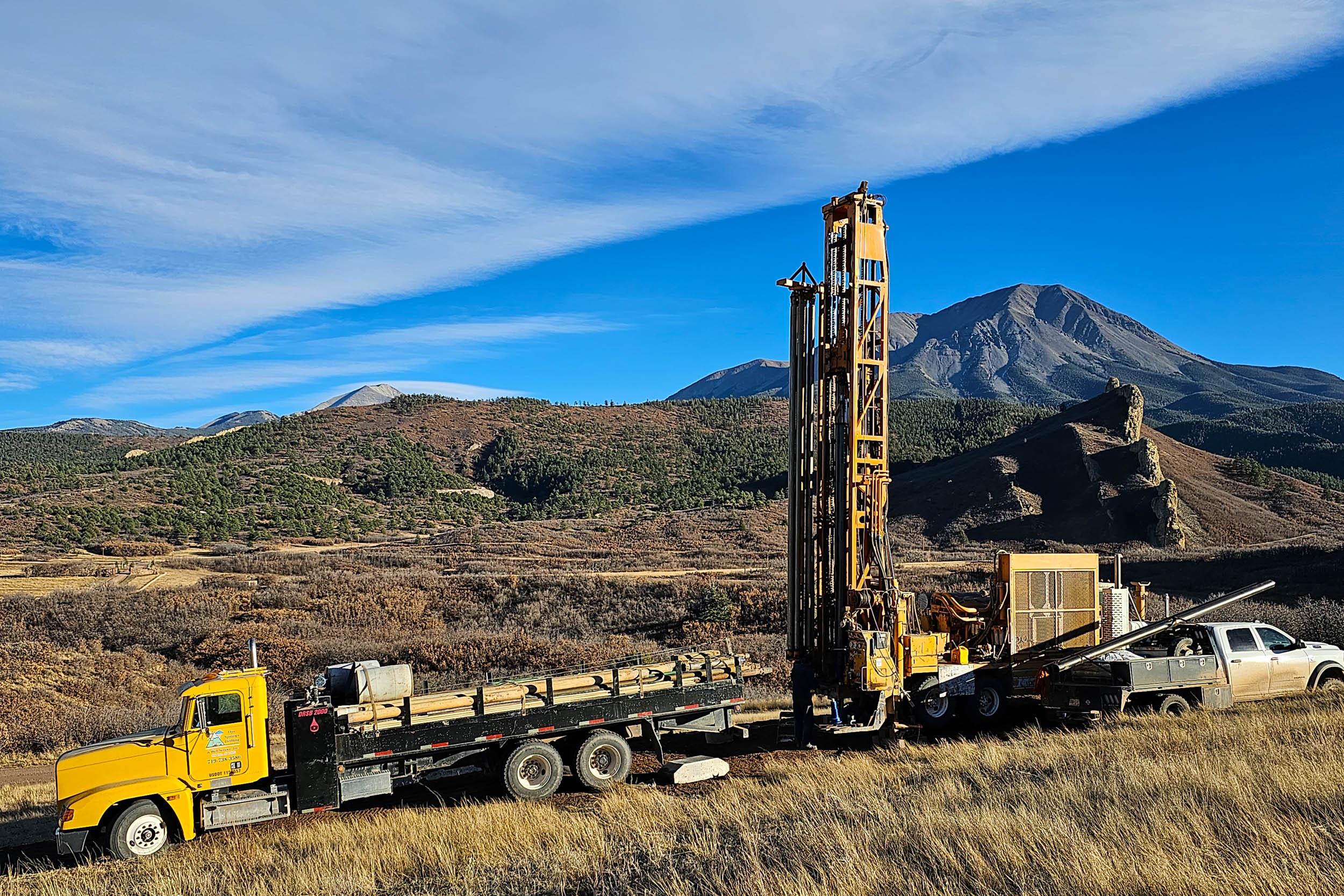Gov. John Hickenlooper reviews the recent legislative session with Ryan Warner and looks ahead to what he'll work on this summer.
[CPR Photo]
Transcript:
This is Colorado Matters from Colorado Public Radio. I’m Ryan Warner. Time for our regular conversation with Gov. John Hickenlooper. His first legislative session’s now behind him. We’re going to review that and look at what he plans to work on this summer.
Governor, thanks for being with us again.
JOHN HICKENLOOPER, Colorado Governor:
Always a pleasure to be back.
Warner: And let’s start with your performance as governor during the session, so working with the legislature. In that relationship, what’s something you’d give yourself an A for?
Hickenlooper: Oh, come on, now. Don’t keep trying to get me to grade myself. Pass/fail will work fine.
You know, I thought we did a good job of building relationships, of beginning to recognize what the priorities were of various legislators, both in the House and the Senate and find common ground with them so that even on the tough issues, we can, you know, resolve differences and find a way to move the state forward.
Warner: That didn’t happen on redistricting.
Hickenlooper: Well, redistricting was, you know, one of those things that was very partisan. We made compromises. I think both President Brandon Shaffer from the Senate and Speaker Frank McNulty from the House, both of them compromised repeatedly, again and again and again. But in the end, there were just a couple places where they couldn’t find common ground. And it’s a shame. We worked so hard; we came so close. But we laid a good foundation.
Warner: A good foundation meaning what, a smoother ride through the courts?
Hickenlooper: Yeah, I think that we kind of laid out a process by which the courts can begin to address it. I mean, they were close.
Warner: Okay, so on this pass/fail thing you set up, what’s something you think you were less successful at, working with the legislature this session?
Hickenlooper: Well, obviously, we didn’t get redistricting done, so I think that was not a great success. I’d say that it took us a while to build the relationships and get to know what were the priorities of the other side, of both the Republicans and the Democrats.
Like the Governor’s Energy Office, which was created by Gov. Ritter. You know, we wanted to expand it somewhat to look at, you know, not just solar and wind and geothermal, but also, you know, trying to find a way to use natural gas in vehicles, right, like for 18-wheelers instead of diesel or for trash trucks or for, you know, fire trucks. It’s much less expensive. The money doesn’t get exported to foreign dictatorships like when we import oil and a great deal of that natural gas comes from Colorado, so it creates revenue for our education system, for our roads, for our rural communities.
So, as we talked about expanding that, somehow the legislature, the Joint Budget Committee, eliminated the funding for the Governor’s Energy Office this year. Now there was enough money so that we could carry over funds that we have, mostly some federal stimulus dollars. I think if we’d done a better job of communicating, we probably could have avoided that situation and we’ll-- you know, we’ll work real hard this summer to create the conversation around some of these new energy ideas and try and expand that playing field.
Warner: But for now, the Governor’s Energy Office continues?
Hickenlooper: Yes, absolutely. We have enough funding for another year, so we have to do a little work here to get people to see that this is worthy of funding and it’s important, I think, for the state’s future.
Warner: Now you said this summer you’d be working on these energy issues?
Hickenlooper: Yeah, and not just-- I talked about natural gas, but solar. We’re working very hard to try and convince General Electric that they need to build their manufacturing facility here.
Warner: Once the session ended, we spoke to the President of the Senate, Brandon Shaffer, who’s a Democrat. He gave you high marks, pointed out you’d appointed a good staff, learned your way around the legislative process, but Sen. Shaffer said he expected something a little different next year, next session.
Sen. BRANDON SHAFFER, Colorado Senate President:
Next year, I anticipate we’ll hear a lot more from him, from, you know, his policy shop and, you know, where he wants to lead the state as we look forward to the economic recovery that’s around the corner.
Warner: Will we see a specific Hickenlooper legislative agenda next session?
Hickenlooper: I’m not sure we want to call it a Hickenlooper legislative agenda. It’s too many syllables, in the first place.
But, more importantly, I think, you know, our goal over the next six months is to work, both with the legislators, but also with civic leaders, you know, non-profit service providers and various business groups and some of our universities, to create what our priorities should be.
All right, it shouldn’t be about, you know, what John Hickenlooper thinks is the best thing. Certainly I went through the election and I got elected, but it shouldn’t just be about one person and I think whether you’re talking about trying to find a solution for marijuana enforcement, right, if people have been smoking marijuana and they cause an automobile accident. I think there’s sufficient science out there that we should be able to, you know, set a limit and everyone agree that if you’ve got a bad back and you’ve got medical marijuana and you smoke it, you better not drive.
They-- I mean, you go down the list of all the difficult issues we had this session that didn’t get resolved, you know, issues around, you know, funding for education, how are we going to fund some of our bridges and roads, all of those things, I believe we will have an opportunity this summer and over the fall to discuss and to begin to find and carve out that common ground.
Warner: Last week as the session ended, you held a press conference to sum things up and a reported pointed out that a lot of the difficult social issues that didn’t make it through the legislature this year, same-sex marriage, the DREAM Act to provide in-state tuition to children of illegal immigrants, that those were likely to be revived next year and this reporter asked whether you would become more involved than you did this session. And here’s what you said.
[recorded segment begins]
Hickenlooper: You know, I’m not sure the governor’s role is to try and create legislation or lobby too hard, one side or the other. Obviously, you have a point of view and you express it. I’ll let the legislature take up some of those thorny issues.
[recorded segment ends]
Hickenlooper: Well, what I meant to say — no one is going to accuse me of being the most articulate governor in the world, but if there’s going to be real momentum around any of these issues, it’s going to come, I believe, from the grassroots. And I’ve had no hesitation expressing my opinion about civil unions, for instance, that it is a matter of civil rights. It doesn’t mean that I’m going to go out and get out lobbying and involved in the creation of the statute.
Again, I believe that’s the-- more rightfully the role of the legislature and that the governor’s role is to make sure that we have an appropriate discussion, weigh in where you feel you’ve got a strong opinion. I’m sure there will be times when we’ll initiate legislation, but they will not be numerous.
Warner: They will not be numerous. I mean, that’s key, right? I mean, there’s some who might view the governor’s role as saying, gosh darn it, I’m more powerful than any single member of the legislature, because I was elected statewide and I’m going to develop a concrete agenda, I’m going to come to lawmakers with what I want to see happen, maybe even drafts of how I want it phrased and I’m going to tell them to do this or to work on it, that that’s the role you play. You don’t see it that way?
Hickenlooper: Well, I think that, in my experience, you can have more success being part of a team, rather than trying to exert your will. And you’ve got authority, you’ve got a certain level of power and you’re not afraid to use it, but longer-term solutions, I think, come from a more collaborative environment.
Warner: You’re listening to Colorado Matters. I’m Ryan Warner and we’re talking with Gov. John Hickenlooper. We speak with him regularly from the State Capitol.
Democratic State Sen. Rollie Heath has started gathering signatures for a ballot measure that would raise the state sales tax and income tax for five years to pay for education. Is he on the right path there, do you think?
Hickenlooper: Well, I think what Rollie-- I mean, I made a commitment during the campaign that we were going to balance the budget without raising taxes and I’m going to stay true to that commitment. But I think what Rollie is doing is he’s going to get out there and, hopefully, create a direct and honest conversation about the level of resources we need to successfully educate, you know, our children. And that conversation, as people get into it, I think will have a resonance across the state.
Warner: One problem that has plagued the state for years is something called the Colorado Benefits Management System, CBMS. It’s got so many problems, the feds have threatened a $2.4 million fine for backlogs in processing food stamps. County human services folks complain there are still huge backlogs for all sorts of claims. Your chief of staff told the Denver Post in February this was a high priority for you. What steps have you taken, so far, to deal with this program?
Hickenlooper: CBMS was a fiasco, I think, by any person’s measure. The state took on a very complicated challenge of trying to create software that would allow us to knit together a number of the federal entitlement programs and it’s been far more difficult than the original vendor thought, certainly than anybody involved. And I don’t-- I’m not one to criticize. When I first heard they were working on this, I thought it seemed like a great idea. I think they got some bad technical advice, to be very blunt.
We’re addressing this and we have made it a high priority on two levels. First, on the primary level, how do you get work-arounds and short-term fixes to get down those backlogs of things like food stamps? And we’ve made real progress.
Long term, which is, I think, the real issue, we’ve put a team together to look at what is an ultimate solution. In other words, what is the right way to be doing this? One thing that’s interesting is that Colorado went this route largely by itself. You know, it seems more reasonable to look at this as a national issue. These are almost all federal programs and there might be a way of partnering with some of the other states to find a more efficient and cost-effective solution.
Warner: Would that mean scrapping CBMS?
Hickenlooper: That decision hasn’t been made, but certainly it has been a great bone of contention, how flawed the software is, but also whether those flaws are fatal. In other words, should it be just completely discarded?
Warner: What else is ahead this summer?
Hickenlooper: Obviously, we’re going to continue to keep economic development at the highest level of our priorities. I was out this morning talking to a group about increasing our exports at the same time we’re fleshing out and building our Colorado Ambassadorship program whereby people who are now living in Canada or Mexico or Japan — and these are just three countries we’re going to start with — whether they can knit together networks of people that will help us expand exports to those countries.
Warner: Could you point to a product or products that are just ripe for a new international market?
Hickenlooper: There are all kinds of commodities. There’s a company called StoneAge out of Durango that uses high pressure water both for cleaning stone surfaces and for cutting stone. They’re now selling that technology in 43 different countries.
You know, some of the new product line expansions from SmartWool are being pushed around the globe. Companies like CH2M HILL or MWH, a water consulting firm in north metro Denver, these consulting firms do a lot of their work outside the United States.
Warner: Of course, those are companies already doing it.
Hickenlooper: Well, but they’re doing it, but we’re trying to help them expand, all right? So the Export-Import Bank, which is an arm of the federal government out of D.C., provides incredible financing. So if a business is out there and wants to start exporting something, they can get very favorable terms of financing those exports, I mean, remarkably fair.
Warner: And this would be about, what, having a state version of that, or--?
Hickenlooper: No, no, no. This is about making sure that we, as a state, are making those opportunities known. Those kinds of things, a lot of our local companies don’t know about.
Warner: Well, Governor, thanks so much for being with us.
Hickenlooper: Always a pleasure to have the pleasure of your company.
Warner: That’s John Hickenlooper, Governor of Colorado. He joins us regularly at the State Capitol.








